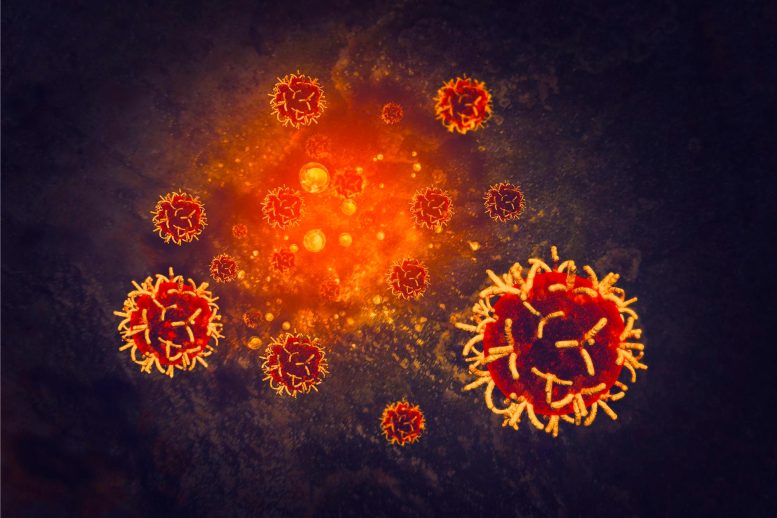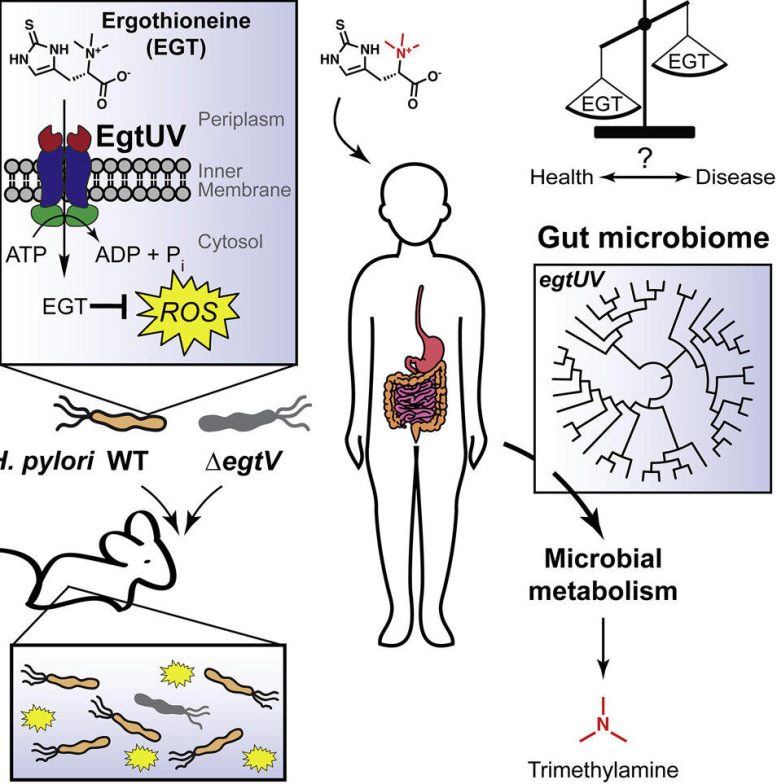
Ergothioneine (EGT), found in foods like mushrooms, beans, and grains, aids cancer-causing bacteria in surviving oxidative stress.
According to a new study from Yale University, a nutrient found in many common foods like mushrooms, beans, and grains may help a cancer-causing bacterium survive.
The nutrient, called ergothioneine or EGT, is an antioxidant that protects bacteria from oxidative stress — an imbalance in the body between reactive oxygen species, known as free radicals, and antioxidants — which is a hallmark of many disease-causing infections. These findings may provide insights into the development of new drugs to combat a range of infectious diseases in humans.
Oxidative Stress and Bacterial Defense Mechanisms
When the immune system produces oxygen-containing molecules called free radicals to kill harmful bacteria, it can lead to an imbalance in the body known as oxidative stress. In response, bacteria may use antioxidant molecules to counteract these free radicals and survive.
Despite decades of research, the specific molecules used by certain bacteria to shield themselves from free radicals in our bodies have remained a mystery.
The new findings, recently in the journal Cell, offer important clues.

In the study, researchers at the Yale Microbial Sciences Institute found that bacteria ingest the EGT nutrient — which is abundant in foods like mushrooms, beans, and grains — to aid their survival. In the case of the gastric cancer-causing pathogen Helicobacter pylori, the bacterium used the nutrient to compete successfully for survival in host tissues.
While similar studies have looked to the field of genetics, the Yale scientists detected bacterial EGT uptake using mass spectrometry and a novel technique they call “reactivity-guided metabolomics” — which harnesses the unique chemistry of specific classes of molecules to identify them in complex biological settings.
Potential for New Drug Development
“We were excited to discover an unconventional mechanism that enables bacteria to withstand oxidative stress during infection,” said Stavroula Hatzios, an assistant professor of molecular, cellular, and developmental biology and of chemistry in Yale’s Faculty of Arts and Sciences, and senior author of the study.
“Because the protein that bacteria use to take up EGT operates in a manner distinct from that of its counterpart in human cells, we are optimistic that a specific drug could be developed to inhibit microbial uptake of this nutrient,” she added.
Human cells also take in dietary EGT. In humans, EGT is known for its anti-inflammatory properties and is widely associated with disease prevention.
Reduced levels of EGT have been linked to an increased risk of neurodegenerative, cardiovascular, and autoimmune disorders, suggesting bacterial consumption of this nutrient may have far-reaching implications for human health.
Reference: “A microbial transporter of the dietary antioxidant ergothioneine” by Daniel G. Dumitrescu, Elizabeth M. Gordon, Yekaterina Kovalyova, Anna B. Seminara, Brianna Duncan-Lowey, Emily R. Forster, Wen Zhou, Carmen J. Booth, Aimee Shen, Philip J. Kranzusch and Stavroula K. Hatzios, 7 November 2022, Cell.
DOI: 10.1016/j.cell.2022.10.008
Never miss a breakthrough: Join the SciTechDaily newsletter.
3 Comments
Mushrooms? No, if you do your research mushrooms actually prevent cancer. In Japan, doctors prescribe turkey tail mushrooms alongside chemotherapy.
Biochemical processes in the body are far more complex than the marketing material you read on mushrooms. You sound like you’ve done nothing more than read the superficial marketing verbiage on product listing pages. Try rereading this short article.
“In the case of the gastric cancer-causing pathogen Helicobacter pylori, the bacterium used the nutrient to compete successfully for survival in host tissues.”
This regards recent research that shows this activity. You do realize that 100% of people who consume even medicinal mushrooms are not guaranteed to not get cancer, or do you exist in that idealistic fantasy world where everything is simple and black and white?
The title should be ” Bifidobactetium in the Microbiome reduces the Incidence of Colorectal Cancer”.
Eating yogurt is one way to increase bifidobacteria . Eating a vegan diet with plentiful fiber and polyphenols is another way to increase this beneficial bacteria in the microbiome.